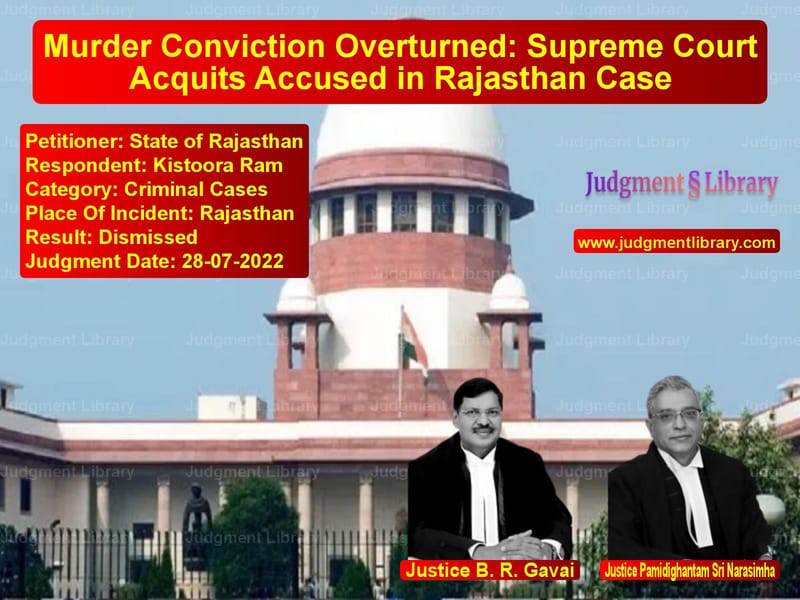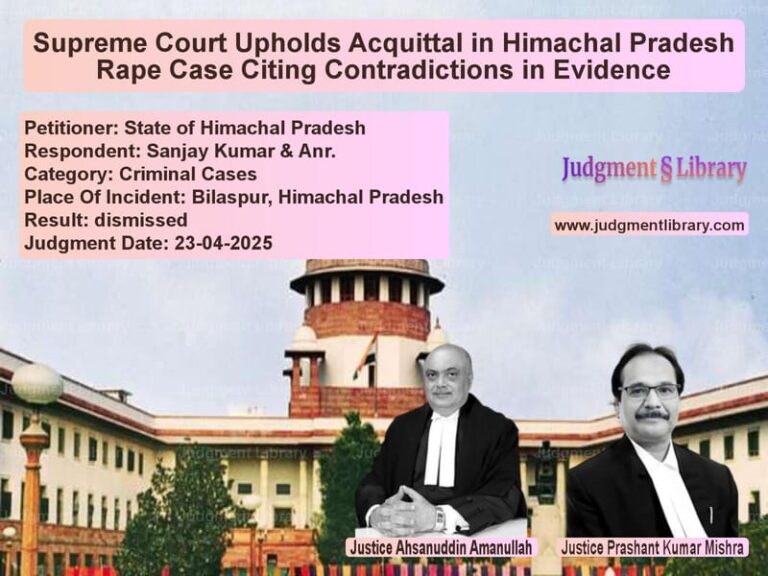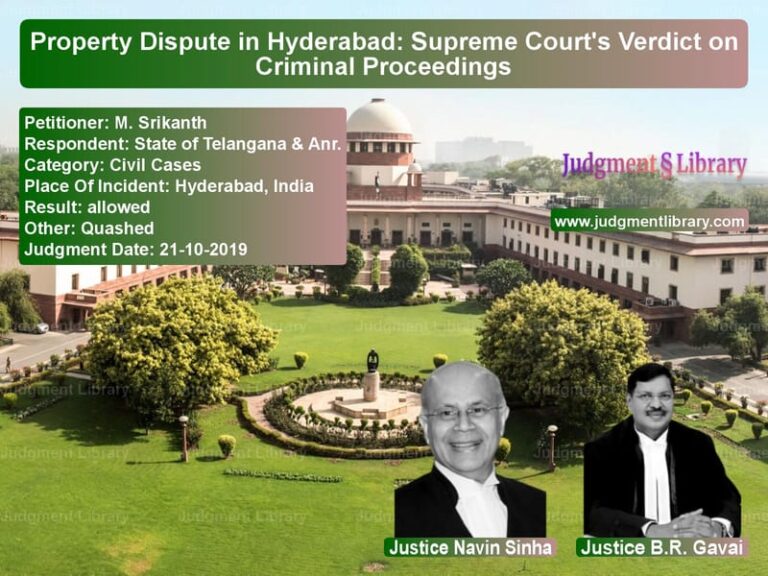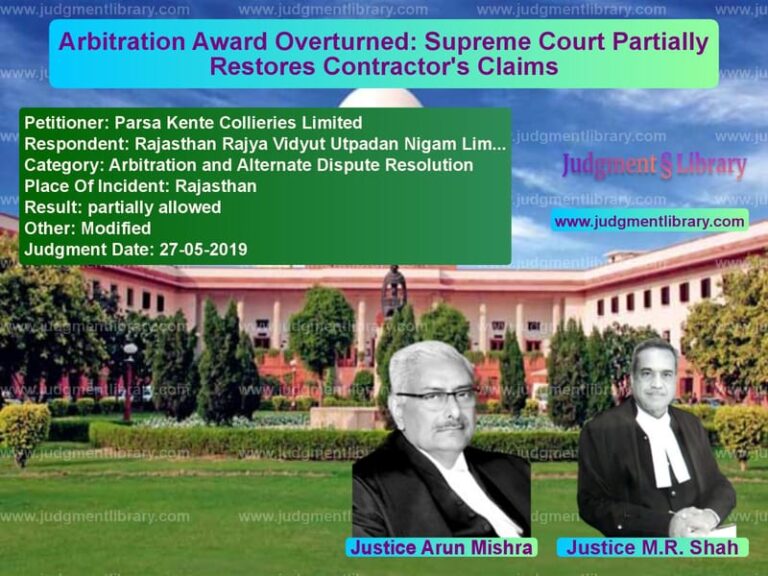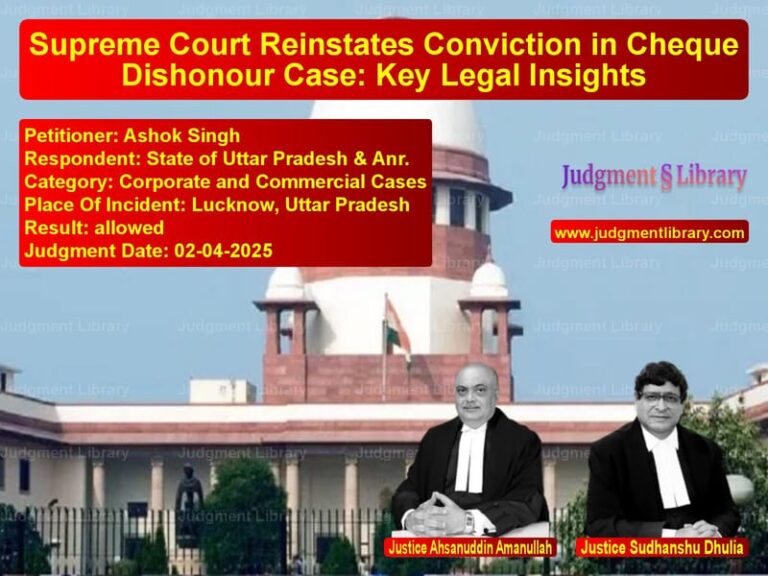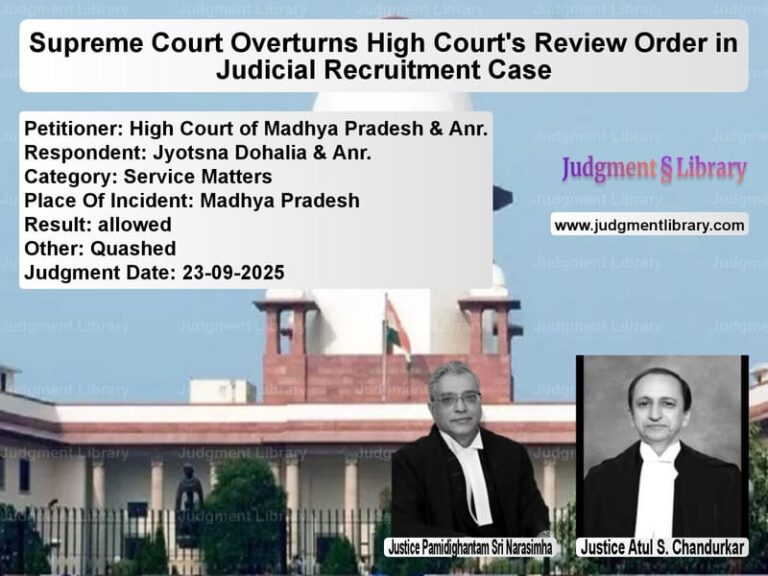Murder Conviction Overturned: Supreme Court Acquits Accused in Rajasthan Case
The case of State of Rajasthan vs. Kistoora Ram revolved around the alleged murder of the accused’s wife, where he was convicted under Section 302 and Section 201 of the Indian Penal Code (IPC) by the trial court. However, the High Court later acquitted him, leading to an appeal by the State of Rajasthan before the Supreme Court. The Supreme Court upheld the High Court’s decision and dismissed the appeal.
Background of the Case
The prosecution alleged that Kistoora Ram had killed his wife by beating her with a lathi and later set her body on fire to destroy evidence. The case was primarily based on circumstantial evidence and an alleged extra-judicial confession made by the accused to a witness.
The trial court found him guilty and sentenced him to:
- Life imprisonment under Section 302 of the IPC.
- Three years of rigorous imprisonment under Section 201 of the IPC.
- A fine of Rs. 100 for each charge.
The accused appealed to the Rajasthan High Court, which overturned the trial court’s decision and acquitted him of all charges. The State of Rajasthan then challenged this acquittal before the Supreme Court.
Arguments Presented
Petitioner’s (State of Rajasthan) Arguments:
- The State contended that the trial court had correctly convicted the accused based on the evidence, particularly the testimony of Guman Singh (PW-4).
- The extra-judicial confession made to PW-4 should be considered credible and sufficient for conviction.
- The High Court erred in disregarding the confession and overturning the conviction.
Respondent’s (Kistoora Ram’s) Arguments:
- The defense argued that the case lacked direct evidence, and the entire prosecution relied on weak circumstantial evidence.
- The alleged confession was not supported by corroborative evidence, making it unreliable.
- Another witness, Hamira Ram (PW-7), had turned hostile, weakening the prosecution’s case.
Supreme Court’s Observations and Ruling
The Supreme Court ruled in favor of the accused, upholding the High Court’s decision to acquit him. The Court noted that the scope of interference in acquittals is limited, stating:
“Unless it is found that the view taken by the Court is impossible or perverse, it is not permissible to interfere with the finding of acquittal.”
The Supreme Court also pointed out:
- The High Court correctly observed that extra-judicial confessions are weak evidence and require corroboration.
- In this case, no other evidence supported the alleged confession.
- The High Court relied on precedent from State of Punjab vs. Bhajan Singh and Gopal Sah vs. State of Bihar, where extra-judicial confessions alone were deemed insufficient for conviction.
The Supreme Court concluded:
“The view taken by the High Court cannot be said to be either impossible or perverse meriting our interference.”
Thus, the Supreme Court dismissed the appeal and upheld the acquittal.
Key Takeaways from the Judgment
- The ruling reinforces that extra-judicial confessions require corroboration and cannot be the sole basis for conviction.
- The Court emphasized the principle that acquittals should not be overturned unless the findings are perverse or unsupported by evidence.
- The judgment upholds the accused’s right to a fair trial and prevents wrongful convictions based on weak or unreliable evidence.
Conclusion
The Supreme Court’s decision in this case reiterates the importance of strong, corroborative evidence in criminal convictions. The judgment ensures that circumstantial evidence and extra-judicial confessions are not misused to convict individuals without solid proof. The ruling stands as a crucial precedent in cases relying solely on confessions without substantive supporting evidence.
Petitioner Name: State of Rajasthan.Respondent Name: Kistoora Ram.Judgment By: Justice B. R. Gavai, Justice Pamidighantam Sri Narasimha.Place Of Incident: Rajasthan.Judgment Date: 28-07-2022.
Don’t miss out on the full details! Download the complete judgment in PDF format below and gain valuable insights instantly!
Download Judgment: state-of-rajasthan-vs-kistoora-ram-supreme-court-of-india-judgment-dated-28-07-2022.pdf
Directly Download Judgment: Directly download this Judgment
See all petitions in Murder Cases
See all petitions in Fraud and Forgery
See all petitions in Attempt to Murder Cases
See all petitions in Judgment by B R Gavai
See all petitions in Judgment by P.S. Narasimha
See all petitions in dismissed
See all petitions in supreme court of India judgments July 2022
See all petitions in 2022 judgments
See all posts in Criminal Cases Category
See all allowed petitions in Criminal Cases Category
See all Dismissed petitions in Criminal Cases Category
See all partially allowed petitions in Criminal Cases Category

